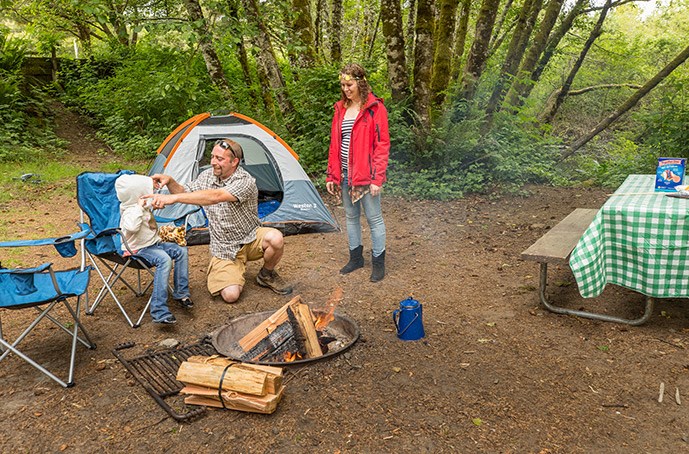As a highly experienced outdoorsman and proud owner of FP7 Hunt, I’ve learned to safely combine my favorite hobbies of hunting and camping.
Camping while hunting is a match made in heaven when you can pull it off, but it can quickly turn into an utter nightmare if it goes wrong – I have a couple of stories about this myself!
Let me give you a rundown of the most common ways that things can turn south and what you can do to avoid being a victim…
Not Having the Right Gear: High-quality hunting and camping gear is not just about comfort, it’s about safety too. Ensure you pick thermal and waterproof clothing, sturdy boots, and always carry a basic first-aid kit. Depending on your location, consider bear spray or survival tools like multi-purpose knives.
Fire Safety Issues: Campfires are excellent for cooking food, generating heat, and creating a barrier against wildlife. However, they can also prove deadly if not handled wisely. Always build your fire far from tents or flammable equipment, have water nearby to put it out, and never leave it unattended.
Lack of First Aid Skills: Not getting hurt in the first place is always the best option, but it’s impossible to guarantee. You need to have some basic first aid skills in case of injury while camping or hunting.
Recommended Gear for a Safe Hunting and Camping Trip
- A reliable tent and sleeping bag are a must, ensuring comfort and protection from the elements.
- A first-aid kit, stocked with bandages, antiseptics, and medicine, is crucial for any accidents.
- High visibility clothing, such as a hunter-orange vest or hat, is vital to prevent being mistaken for game.
- A sturdy hunting knife, for utility and protection.
- Don’t forget a reliable flashlight, and extra batteries, for navigation in low light.
- Carry a compass and map for navigation if you lose signal.
- A firestarter kit for warmth and cooking.
- A whistle for emergencies.
- Bear spray if you’re in bear country.
Expert Advice on Avoiding Fire Safety Issues while Camping and Hunting
Choose Your Campsite Wisely: The key to a safe fire begins with the location you choose to set up camp. You’ll want to avoid areas with overhanging branches, dry grass, or other easily flammable materials. Always look for a clear area or use established fire pits if available. Preferably, there should also be a water source nearby.
Build A Safe Fire Ring: If no pre-established fire pit is present, create a makeshift fire ring using rocks. This will serve to contain the fire and prevent it from spreading. Remember, the smaller the ring, the smaller (and safer) the fire.
Avoid Using Accelerants: It may seem fun or expedient to use accelerants like gasoline or lighter fluid to get your fire going, but this can quickly lead to uncontrolled flames. Instead, learn to start a fire using kindling and medium-sized firewood.
First Aid and Emergency Protocols for Campers and Hunters
Armed with a well-stocked first-aid kit and knowledge of basic emergency protocols, I’m prepared for any medical emergencies that can occur while camping or hunting. My kit includes bandages, antiseptics, tweezers, and a snake bite kit, to name a few. I’ve also learned how to use each item effectively.
Knowing CPR and how to treat wounds, sprains, fractures, and hypothermia is crucial. I’ve also learned how to recognize and react to symptoms of heat stroke and dehydration. The American Red Cross offers training options across the USA.
In case of severe injuries, I’m aware of the importance of stabilizing the victim and seeking immediate professional help. I always have emergency numbers at hand and know the nearest medical facilities in advance.
Staying calm, acting swiftly, and applying my first-aid knowledge can make all the difference.
Conclusion
Don’t just wing it and charge into the wilderness with your tent and trail mix. Arm yourself with knowledge, gear, and a healthy respect for Mother Nature.
The issues above are some of the most common, but of course, there are many other extremely important factors to consider. Do your research and talk to a more experienced local hunter if you have any doubts.

